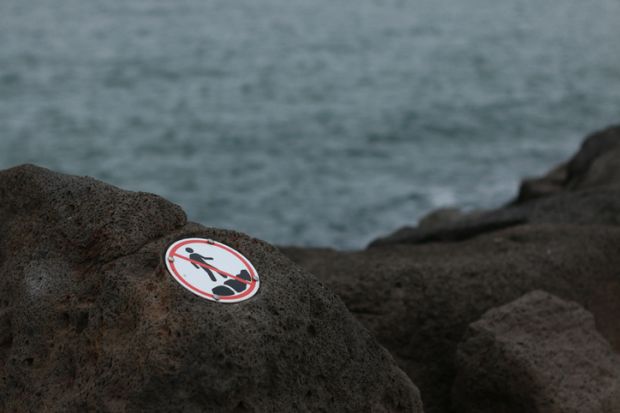The coronavirus-related travel ban jeopardising Australian international education remains in place, with education minister Dan Tehan unlikely to announce changes during an address to the Universities Australia conference in Canberra.
Mr Tehan previously raised hopes that universities could be next in line for an exemption from the rules banning entry to Australia from China, after the government relaxed restrictions affecting schools. “Based on medical advice next week, [we will] then look at international tertiary education students,” he told a 22 February press conference.
Health authorities had advised that Sars-CoV-2 had been contained in Australia and exemptions should be considered for “small numbers of cases”. But in a speech prepared for the Universities Australia conference on 26 February, Mr Tehan says the exemption is a “strict pathway” for senior school students only.
“One day, and I hope that day comes very soon, our higher education sector will resume normal operations,” the speech says. “Until such time we all must continue to work together on innovative solutions to our shared problems. The government has directed the education regulators to offer maximum flexibility to providers.”
Mr Tehan will also stress that any funding increases for universities will require convincing arguments. “I worry that over the 30 years since the Dawkins reform [which introduced income-contingent loans] the connection between the public-private benefit and cost of education has decoupled through various policy approaches,” his speech says.
“At the very least, we need to be able to much better articulate that benefit and cost with the broad Australian community, and be willing to adjust it to 21st-century values and conditions. If we are going to present a case to the Australian public then we are going to have to work together to build that case.”
Any such increases risk being dwarfed by the losses triggered by the travel ban. The University of Sydney is among the institutions most affected, with around 14,000 students caught offshore.
Some 4,000 of them are rumoured to be transiting via Thailand, although the university believes this is a massive overestimate. But a spokeswoman said it did not know how many of its students were travelling via third countries, because they were not obliged to report their movements.
Some commentators say that travel via third countries is risky because of scant testing in some jurisdictions. But Western Sydney University vice-chancellor Barney Glover, whose university is offering a A$1,500 (£770) subsidy to students who transit via third countries, described it as a “viable, sensible” option.
“Students desperately want to get onshore and start studying,” he said. “We thought we should do whatever we could to assist.”
Coronavirus fears have been stoked by revelations of a 3 per cent mortality rate from the disease in China. UNSW Sydney influenza expert Raina MacIntyre said that this meant “sustained transmissions” in Australia could kill upwards of 500,000 people.
“Australia has done an excellent job of preventing sustained transmission [but] if epidemics grow in other countries, so will the risk,” she said.
Griffith University virologist Nigel McMillan said that a pandemic was now “more likely than not” and travel bans would “no longer be useful or make sense” in such circumstances.
Thousands of Chinese university students are thought to have circumvented the ban by transiting via countries such as Thailand and Malaysia, thus meeting their obligations to quarantine themselves from the Australian population for two weeks after leaving China.
Auckland University of Technology said that it was not encouraging its 1,000-odd stranded Chinese students to come via third countries, even though New Zealand’s travel ban has been extended until 3 March.
“We’re not sure how many of our students will be travelling via that route,” said vice-chancellor Derek McCormack. But he said that students “might be making their own plans”, keen to push on with their studies in a country with a low coronavirus caseload.
Prime Minister Jacinda Ardern said that New Zealand was considering a “targeted exemption” for tertiary students. The education sector would need to “reassure us and the public that it has credible self-isolation and accommodation plans in place”, she stressed.
Register to continue
Why register?
- Registration is free and only takes a moment
- Once registered, you can read 3 articles a month
- Sign up for our newsletter
Subscribe
Or subscribe for unlimited access to:
- Unlimited access to news, views, insights & reviews
- Digital editions
- Digital access to THE’s university and college rankings analysis
Already registered or a current subscriber? Login








